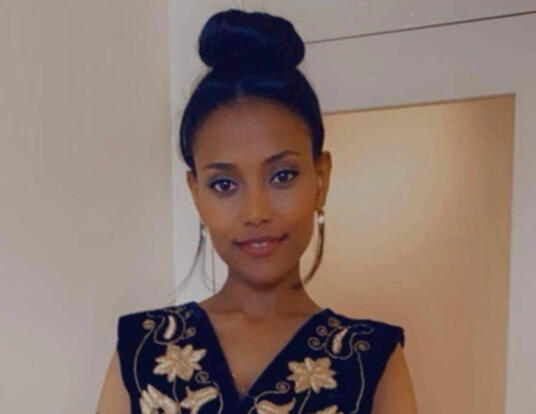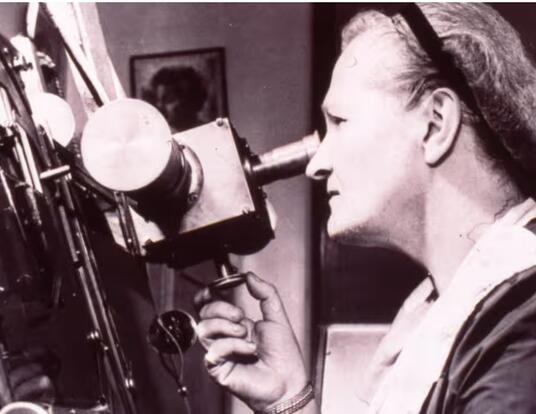Leading the Way
Pioneering centennial medalists highlight the power of a Harvard Griffin GSAS education
The Harvard Kenneth C. Griffin Graduate School of Arts and Sciences (GSAS) will present the Centennial Medal to six distinguished alumni on May 24, 2023, culminating a year of celebration of the School’s 150th anniversary. The Centennial Medal, which recognizes those who have made fundamental and lasting contributions to knowledge, their disciplines, their colleagues, and society, is the highest honor that the Harvard Griffin GSAS bestows.
The 2023 Centennial Medal award ceremony will be livestreamed at 12:15 pm Eastern Time on the School’s YouTube channel. The event includes the reading of the citations, awarding of the Centennial Medal, and remarks by the medalists.
The 2023 Centennial Medalists
Mina Bissell, AB ’63, PhD ’69, Microbiology and Molecular Genetics
It sounds like common knowledge: cancer develops when genes mutate, causing cells to grow abnormally and out of control. But Mina Bissell has proven that a cell’s surrounding microenvironment actually helps determine whether it behaves normally or becomes cancerous, upending years of conventional wisdom and opening new pathways for cancer research and therapies. Bissell is a distinguished senior scientist at Lawrence Berkeley National Laboratory and has received the lab’s Lifetime Achievement Award, the American Association for Cancer Research Lifetime Achievement Award, and the American Cancer Society Medal of Honor.
“Mina has the ability to design and execute innovative, imaginative, and interesting experiments and to think out of the box in formulating explanations of her experimental findings,” says Joan Brugge, director of the Harvard Ludwig Cancer Center. “Mina spoke to a predominantly deaf audience for many years and bravely forged on despite skepticism. The field has now caught up with Mina. The concepts that she has developed are fundamental to normal tissue morphogenesis and cancer, and the impact of her work is profound.”
Catherine Cesarsky, PhD ’71, Astronomy
Catherine Cesarsky’s trailblazing achievements in astronomy are matched only by her leadership in some of the highest-ranking scientific positions in Europe. In the 1980s, she was the principal investigator on a groundbreaking, high-resolution infrared camera for the first space telescope to gather significant data in the infrared spectrum, essential for observations of cooler objects, like stars in formation. She has served as High Commissioner for Atomic Energy in the French Alternative Energies and Atomic Energy Commission (CEA), director general of the European Southern Observatory, and president of the International Astronomical Union, and she is currently council chair for the Square Kilometer Array observatory, an international effort to build the world’s largest radio telescope across South Africa and Western Australia.
“Catherine Cesarsky is a true inspiration by virtue of her scientific research on the frontiers of cosmic rays, the interstellar medium, and infrared astronomy, as well her major leadership positions,” says Avi Loeb, Frank B. Baird Jr. Professor of Science. “Her rare qualities of integrity and rigor provide a fantastic role model to young scholars worldwide.”
John Dower, AM ’61, PhD ’72, Regional Studies–East Asia and East Asian History
A towering figure in the field of Japanese history, John Dower has shaped our understanding of Japan’s emergence after World War II and the importance of considering visual culture and everyday life in the practice of history. His 1999 book Embracing Defeat: Japan in the Wake of World War II won the Pulitzer Prize and the National Book Award, among many other honors in the United States and Japan. Dower is Ford International Professor of History, Emeritus, at MIT, where in 2002 he launched “Visualizing Cultures,” a pioneering online repository of visual materials for the study of East Asian history, still in active use today.
“John’s mantra was that the images need to drive the story,” says Andrew Gordon, Lee and Juliet Folger Fund Professor of History. “You don’t write your history and then find an image or two that illustrates it. You start with the visual material, you figure out what’s going on there and what it’s saying, and then you let that drive your approach to the history. He’s had a major influence on how people approach visual material in the writing and teaching of history.”
Du Yun, PhD ’06, Music
Both composer and performer, musician and visual artist, Du Yun is as fluent in the vocabulary of opera and orchestral music as she is in that of theater, cabaret, oral tradition, electronics, and noise—and she brings it all to bear in visceral, collaborative, irrepressible work that has garnered the very highest global acclaim. A professor of composition at the Peabody Institute of the Johns Hopkins University and a distinguished visiting professor at the Shanghai Conservatory of Music, she became the first Asian woman to receive the Pulitzer Prize for Music in 2017 for her opera Angel’s Bone. She is the youngest person in Harvard’s history to receive a Centennial Medal.
“Du Yun’s new work is some of the most widely performed in her generation of composers,” says Claire Chase, professor of the practice in the Department of Music. “She refuses to fit into any niche, and she playfully but purposely foils categorization of any kind. As a composer, performance artist, curator, educator, beloved collaborator, and fiercely dedicated advocate for her fellow musicians, Du Yun is one of the defining artists of our time.”
Daniel Goleman, PhD ’74, Psychology and Social Relations
Through award-winning journalism, bestselling books, public speaking engagements, and nonprofit leadership, Daniel Goleman has enshrined the concept of emotional intelligence in the classroom, in the boardroom, and in the public consciousness. His 1995 book Emotional Intelligence popularized the concept and garnered widespread attention and acclaim, earning a spot on The New York Times bestseller list for a year and a half. Subsequent works, including his 1998 Harvard Business Review article “What Makes a Leader?”, brought the concept of emotional intelligence to the business world. Goleman has advanced the social impact of his work through organizations like the Collaborative for Academic, Social, and Emotional Learning, which has helped bring the principles of social and emotional learning into thousands of schools worldwide.
“Dan’s intellect is both brilliant and voracious,” says Teresa Amabile, Baker Foundation Professor at Harvard Business School. “He is immensely curious about, and passionately driven to understand, everything about human thoughts, emotions, and behaviors. He does so much more than translate psychological research for a wide audience; his insightful, beautiful prose brings science to life and, in so doing, improves life for all of us.”
Sanford Greenberg, PhD ’65, HLS ’68, Government
Through civic-minded entrepreneurial efforts and a passion for helping others, Sanford Greenberg overcame staggering adversity, including the loss of his sight at the age of 19, to become a singularly successful business leader and philanthropist. As a graduate student at Harvard, Greenberg invented a machine that could speed up tape-recorded human speech without distortion—just one of many successful business ventures. He also created the first global database tracking antibiotic resistance, launched the Greenberg Prize to End Blindness, and is an emeritus trustee of Johns Hopkins Medicine and chairman of the board of governors of the Wilmer Eye Institute at Johns Hopkins University, which established the Sanford and Susan Greenberg Center to End Blindness in 2021.
“Sandy’s ready to take on everything,” says Alfred Sommer, MD ’67, dean emeritus of the Johns Hopkins Bloomberg School of Public Health. “He is in control, and he does not in any way give ground because he’s blind. He’s in charge, regardless of what the situation is. He listens and he digests, and he comes up with critical questions. Sandy’s got a lot of experience, a lot of wisdom, and he’s someone who really goes out of his way for his friends.”
Get the Latest Updates
Join Our Newsletter
Subscribe to Colloquy Podcast
Simplecast





